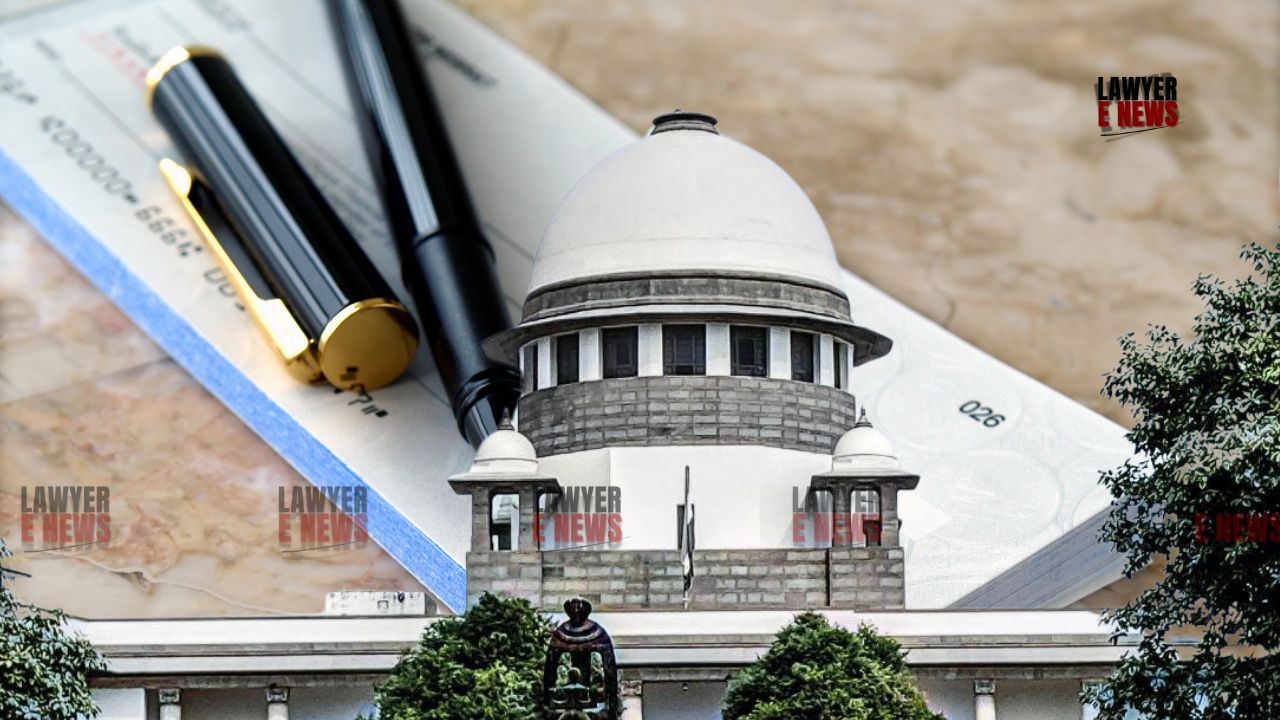-
by Admin
15 February 2026 2:36 AM



In a recent landmark judgment, the Supreme Court of India has affirmed that the owner of confiscated goods must pay customs duty and any applicable interest when the goods are redeemed after paying a fine. This decision resolves significant legal ambiguities about the interplay between Sections 125 and 28 of the Customs Act, 1962. The ruling, delivered by Justices Pamidighantam Sri Narasimha and Aravind Kumar, emphasized that interest on delayed payment of duty is mandatory under Section 28AB of the Act.
The appellant, M/s Navayuga Engineering Co. Ltd., availed customs duty exemptions between November 30, 2003, and April 18, 2007, under a notification intended for specific construction purposes. Investigations revealed violations of the import conditions. Before a show-cause notice was issued, the appellant deposited substantial amounts towards duty and interest. A subsequent show-cause notice proposed confiscation of goods valued at Rs. 48.55 crores, involving a duty liability of Rs. 17.37 crores, interest, and penalties.
The Settlement Commission upheld the duty liability but waived the penalties, finding no deliberate defiance of law. The Commission, following the Supreme Court's earlier judgment in Jagdish Cancer and Research Centre, ruled that interest under Section 28AB was not applicable as the proceedings were initiated under Section 124, not Section 28. However, the High Court reversed this decision, leading to the present appeal.
The Supreme Court reiterated that the liability to pay customs duty is triggered when the owner exercises the option to redeem confiscated goods by paying a fine under Section 125. The Court noted that the duty assessment must follow the procedure laid out in Section 28.
Addressing the applicability of interest under Section 28AB, the Court clarified that once Section 28 is invoked for duty determination, interest on delayed payment becomes obligatory. The Court stated, "The text of Section 125(2) clearly provides that, where any fine in lieu of confiscation of goods is imposed under sub-section (1), the owner of such goods shall be liable to any duty and charges payable with respect to such goods. Once Section 28 applies for determination of duty, interest on delayed payment of duty under Section 28AB follows."
The Court also clarified the interpretation of its previous judgment in Jagdish Cancer and Research Centre, explaining that it did not preclude the application of Section 28 for assessing duty in confiscation cases under Section 125. The Court held, "Jagdish Cancer case is not an authority for the proposition that when the liability to pay customs duty has occasioned under Section 125, the calculation, determination or the assessment of such duty cannot be made under Section 28."
The Supreme Court's decision underscores the legal framework for customs duty and interest obligations in confiscation cases, providing clarity on the application of Sections 125 and 28 of the Customs Act, 1962. This ruling is expected to have significant implications for future cases involving the redemption of confiscated goods.
Date of Decision: July 23, 2024
M/s Navayuga Engineering Co. Ltd. vs. Union of India & Anr.
